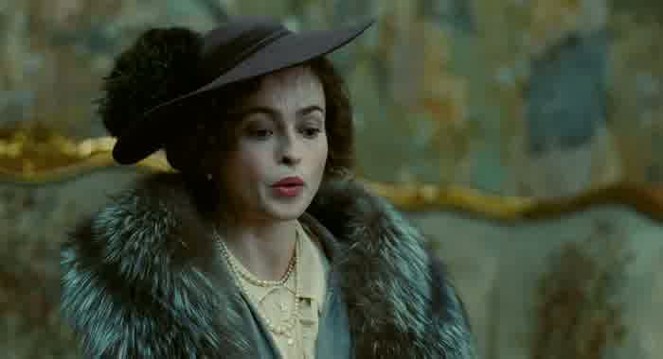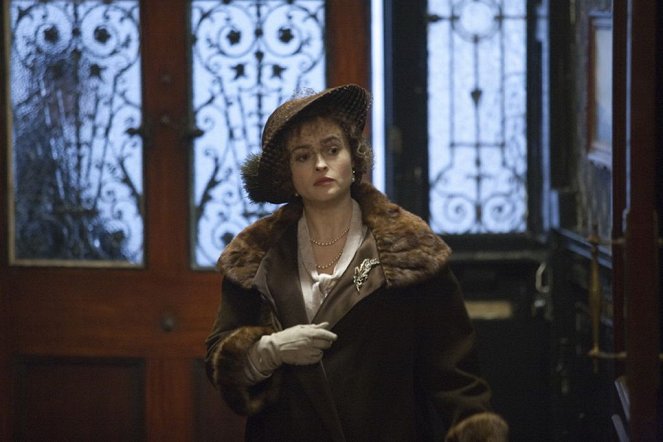Directed by:
Tom HooperScreenplay:
David SeidlerCinematography:
Danny CohenComposer:
Alexandre DesplatCast:
Colin Firth, Helena Bonham Carter, Derek Jacobi, Geoffrey Rush, Richard Dixon, Jennifer Ehle, Ramona Marquez, David Bamber, Michael Gambon, Guy Pearce (more)Plots(1)
Award-winning drama from director Tom Hooper telling the story of the relationship formed between King George VI (Colin Firth, in a Golden Globe and Oscar-winning performance) and his speech therapist Lionel Logue (Geoffrey Rush). After reluctantly acceding to the throne when his older brother Edward VIII (Guy Pearce) abdicates, George, or Bertie to his family and friends, is forced to act when his stutter leads to concerns about his leadership. Help is soon at hand, however, when he employs unconventional speech therapist Lionel Logue, who, using previously untried techniques, begins to bring about improvements in George's speech. As the relationship between the two begins to strengthen, the King's new found confidence grows, just in time for him to lead his country through its gravest hour. (Entertainment One)
(more)Videos (5)
Reviews (11)
A typically British, perfectionistic, and old-fashioned film, which, although it has a number of undeniable merits starting with excellent casting, appropriate performances, and conservative but flawless direction, somehow did not enthuse me and captivate me. It deals with aristocratic "better" people bound by strict social rules, etiquette, and responsibility, not for themselves, but for the reputation and status of their family. These people have sympathy for the plebeians down below and feel responsibility for them about as much as a medieval feudal lord felt responsibility for his subjects. By the way, they reduce people to one group and even though they talk a great deal about that group, they are extremely careful not to get themselves dirty with the people below and actually do not even know them. Overall impression: 80%.
()
Very pleasant period piece. A series of speech therapy sessions is not an ideal premise for the silver screen, but they managed to turn it into a remarkable result. Colin Firth excels in the role of an uncertain stuttering king and his performance is undoubtedly Oscar-worthy, he feels very sincere and uncynical, unlike the rest of the film. The titular “king’s speech” at the end really got me. 9/10
()
Serious themes of an interesting era in the chronicle of humanity, the beauty of Victorian England (exteriors/interiors, aesthetics), and a lead cast of two. These are the three main assets in this formally meticulously done film, which lacks pull and a good dose of emotion. The sparkle is not enough. If Tom Hooper wasn't just a good craftsman, but a progressive innovator who could put his own distinctive spin on things (and there was a ton of room for that here), this would be downright great. Academics have lost their minds over something that isn’t nearly that great.
()
When this film is summarized, it's actually about how one person learns to speak, so he tries not to stutter. It's almost tempting to say that it's banal, but when it's filmed well, when the right actors are chosen, then it becomes something very unique. In this case, it succeeded and Colin Firth and Geoffrey Rush deliver incredible performances. I think Geoffrey is actually the star of this film, but the Academy once again didn't appreciate him. It doesn't matter, it doesn't change the fact that the film is great.
()
The King’s Speech is distinguished by its wonderful camerawork and set designs (the walk through a foggy park with conical trees is an aesthetic orgasm), brilliant actors, handicapped main character (with a heartbreaking crying scene), a loving wife, and when things come to the worst, a sudden sense of urgency brought on by Hitler's coming to power. The film has the pure soul of Rain Man placed in noble English setting in the style of Merchant-Ivory productions, or another certain way to get an Oscar, though this time it is truly kind and sincere. But let’s not be sentimental – Tom Hooper “only” perfectly utilized everything he had been taught at film school and what he learned both in Hollywood and England, and he did not bring any unique artist’s imprint into his work or push filmmaking forward. That’s why during the Academy Awards, I kept my fingers crossed for the more special, bolder and progressive artists Fincher and Aronofsky.
()



Ads